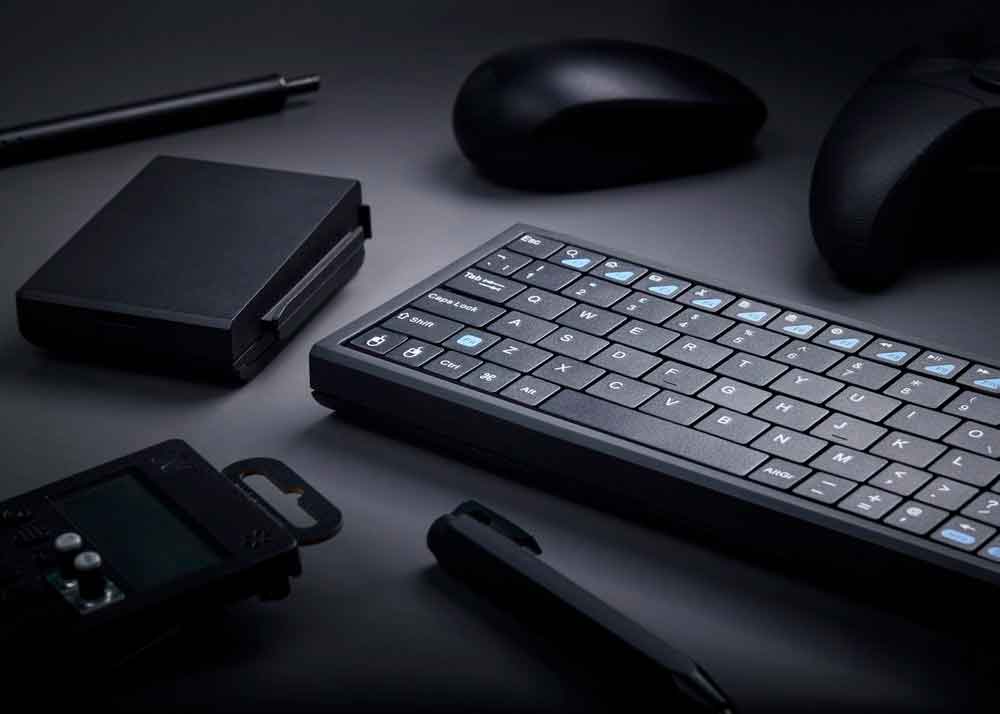Abacus, a compact, economical and sustainable PC

Those who already comb gray hair, when seeing the images of Abacus, the Penta form project, surely remember those computers from the eighties that, with the force of a tsunami, entered our homes and revolutionized everything. I am referring, of course, to those systems contained in a case in whose upper part the keyboard was located. For many people who did not live that time and who do not know those systems, at first glance a Spectrum could pass for a keyboard, instead of a complete CPU with a built-in keyboard.
A first look at the Abacus generates that same feeling, because what we see is a keyboard with a touchpad to its right, although it is true that the keys do not seem to have much travel, which makes it a bit strange that it is so high. The explanation is found by knowing that inside are all the components including an Intel processor, so that it is only necessary to connect it to the electrical network and to a monitor to start working with it.
To motorize this Abacus, Penta form has turned to a custom version of a chip Intel Atom x5-Z8350 Cherry quad-core at 1.44 gigahertz (1.84 in turbo mode) that is supported by 2, 4, or 8 gigabytes of LPDDR3 RAM at 1866Mb/s, Intel Gen8 HD graphics at 500 megahertz and storage eMMC between 16 and 128 gigabytes expandable with an SD card up to 512 gigabytes.

This Abacus surprises in the connectivity section, and it is that in the wireless section we find Wi-Fi AC and Bluetooth 4.2, which are completed with USB 3.0 type C and 2.0 type A ports, an HDMI 2.0 port, an audio minijack and a gigabit Ethernet port. All this integrated in a housing made of a biodegradable polymer and with interior components that are designed to be repairable and recyclable.
Abacus is also a particularly sustainable system in terms of its consumption. As you have already seen, we are talking about a basic range system, more than suitable, however, for many common uses, from browsing the Internet to performing office tasks. But the key to these components is their low consumption which, according to Penta form, can be quantified in as little as 31 kilowatts per year comparing its efficiency to that of a 3-watt LED bulb.
Another very important point of the Abacus is its price. Although its commercialization has not yet started, it is supposed to do so shortly, since it is scheduled for the end of June, and your starting price will be £120 (just under 140 euros at the current exchange rate). The company’s objective, they say, is to create the cheapest computer on the market to facilitate Internet access for users with fewer resources. And although it is true that there are cheaper options, such as the Raspberry Pi, it is indisputable that as a Mini-PC compatible with Windows, its price is quite groundbreaking.
More information: Penta form




